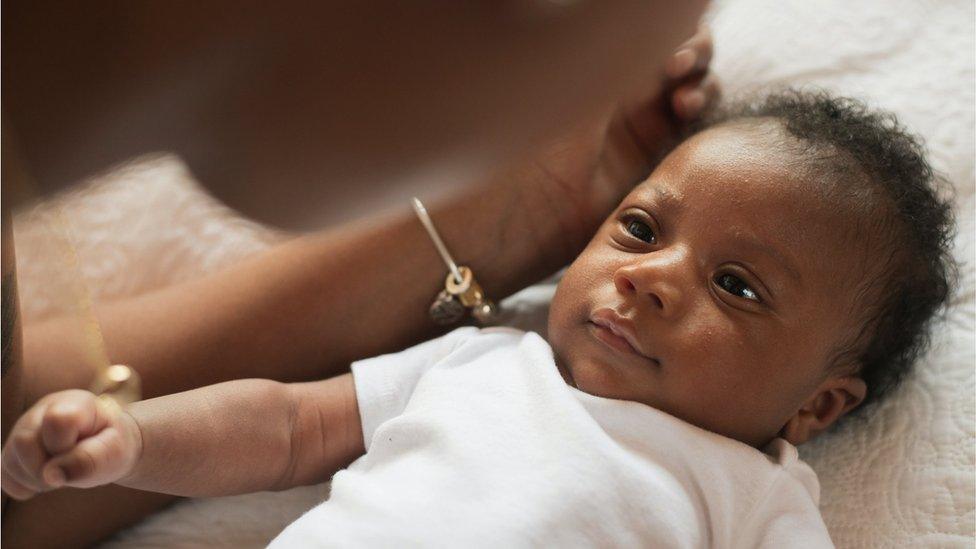Diagnosis of baby jaundice in minutes is 'game changer'
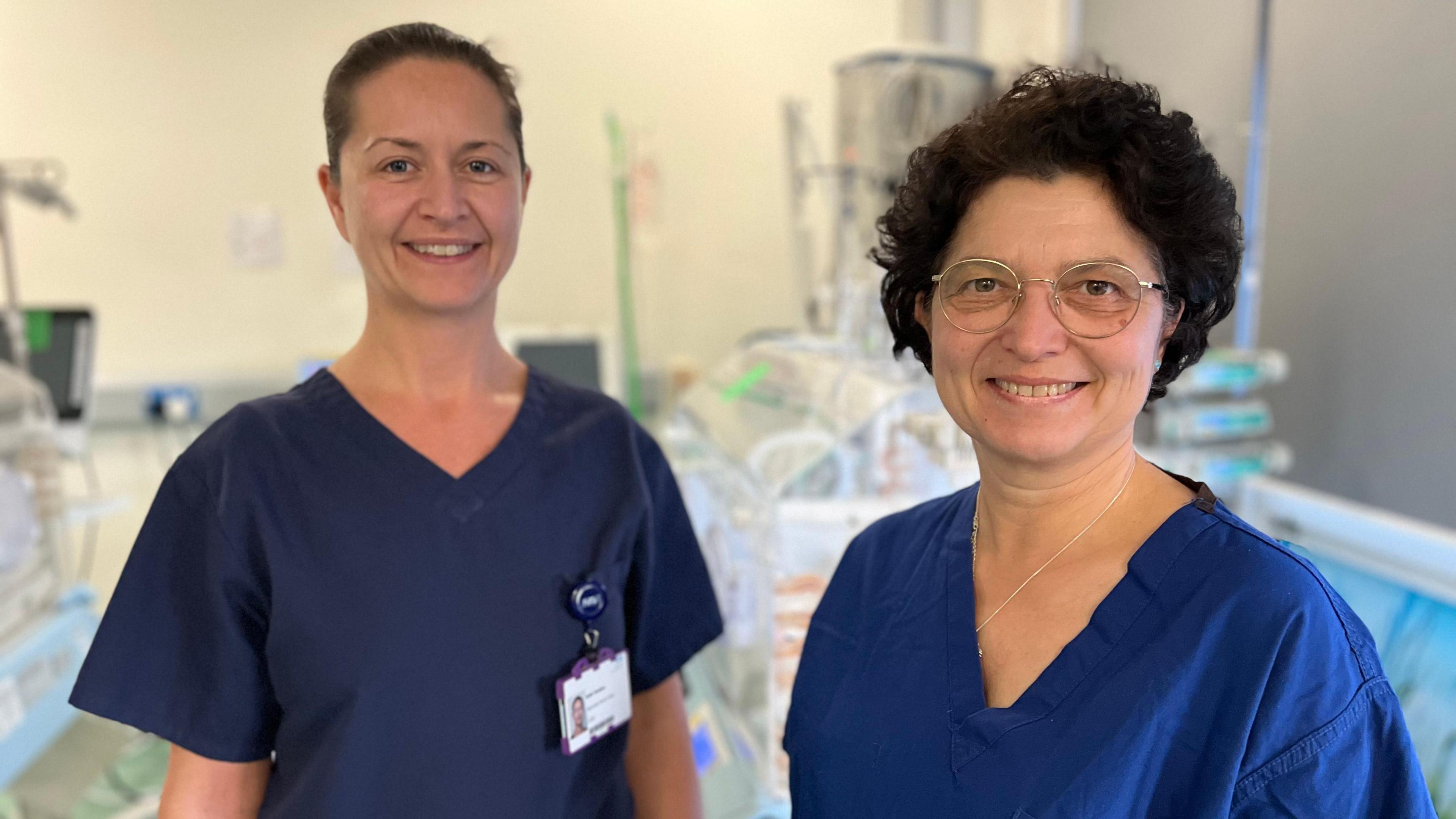
Beth Hawken (L) and Eleonora Forbes' (R) research included reviewing how jaundice was being managed around the world
- Published
A special care baby unit has said it is now able to diagnose jaundice within minutes, describing it as a "real game changer".
All babies are regularly checked for jaundice - a yellowing of the whites of the eyes and skin - in the first few days of life, as, although it is common, the condition can cause serious problems if not treated at the right time.
But following a research project, two neonatal nurses from Yeovil District Hospital say they have reduced the diagnosis time at the hospital from seven hours to three minutes.
Staff nurse Eleonora Forbes said this meant treatment is not only much more efficient, but that babies are not jaundice for so long, meaning "they’re less likely to experience any complications".
She added: "Sometimes if the jaundice gets so high, we aren’t able to treat it at Yeovil District Hospital so the baby has to be transferred to Musgrove Park Hospital, or even Bristol Children’s Hospital, so starting it early can only be a good thing for everyone."
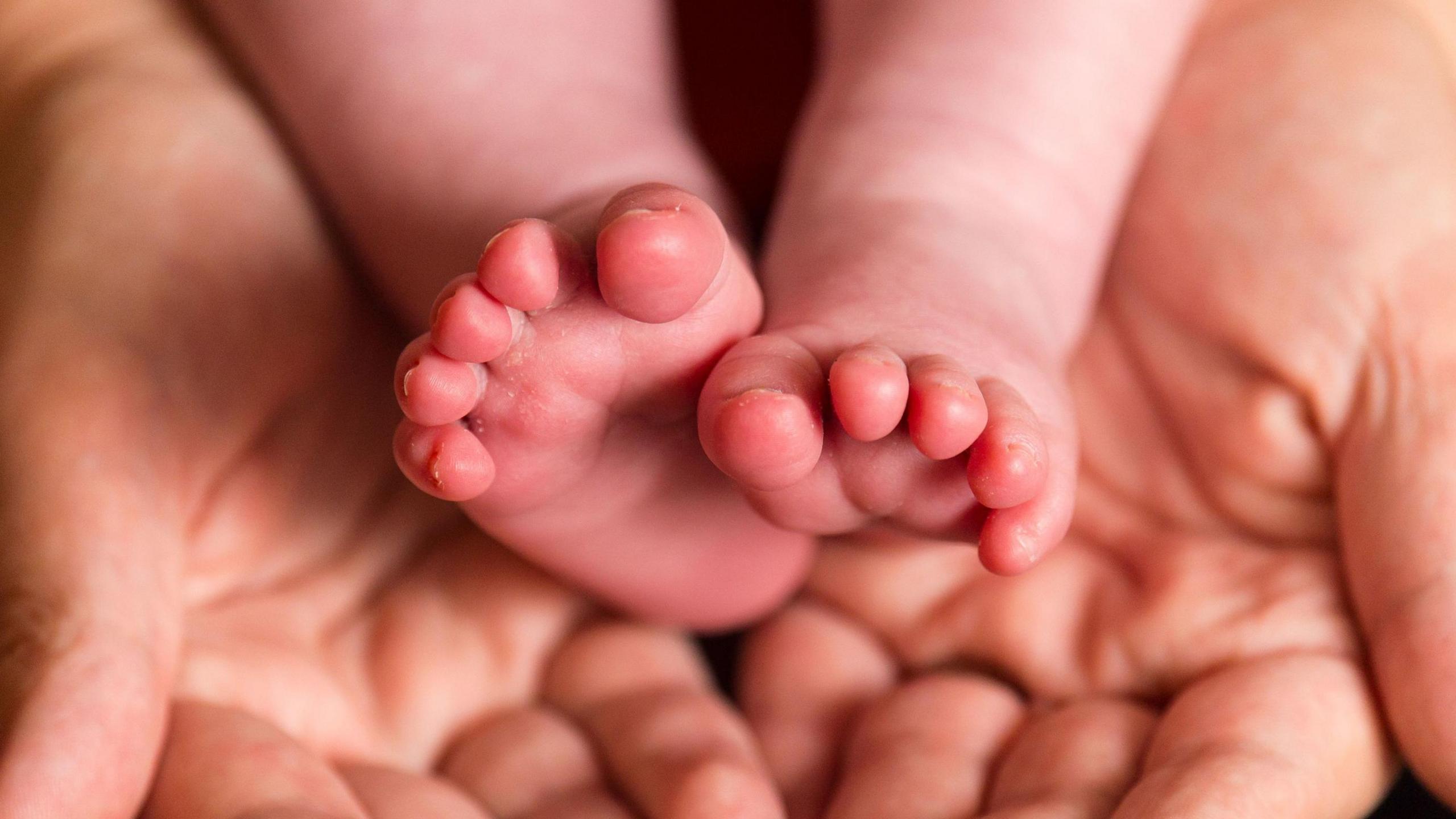
The nurses initially followed the journeys of five babies with jaundice before carrying out a literature review, which involved speaking to other people and groups interested in this type of work
Jaundice is usually harmless and often goes away on its own, but it can be the sign of an underlying health condition.
According to the NHS, treatment is usually only recommended if tests show very high levels of bilirubin [a yellow substance produced when the body breaks down old red blood cells] in the baby's blood, as there is a small risk it could pass into the brain and cause brain damage.
Ms Forbes, along with senior sister Beth Hawken, investigated re-admissions to hospital of small babies with jaundice, including the time it took for them to be reviewed by a doctor and when their bloods were taken.
Hs Hawken explained: “We also looked at the time it took for their bloods to get to the lab, how long the processing took, and the timeframe that a clinician reacted to the result…all the way through to the baby’s discharge from hospital."
The pair found one of the major reasons for a delay in treatment was the blood sample "journey", including the transportation, analysis and checking of result took up to seven hours.
"It felt a bit too long and we were sure that it could be reduced," said Ms Forbes.
'Green light'
She explained a type of blood gas analysing equipment was already in use on the maternity unit but was not calibrated for analysing the bilirubin level in patients.
“From our earlier literature search, we found that some units did use this type of machine in neonatal care, so we contacted our biochemist consultant and asked whether we could do this with our machine," Ms Forbes said.
“They took away our idea for a couple of months to go through all the safety checks and procedures, and then gave us the green light to start the machine to analyse bilirubin levels, meaning babies can get those test results within minutes."
She added: “This is a real game changer in the care of neonatal babies, as their treatment is not only much more efficient, but they’re not jaundice for so long, meaning they’re less likely to experience any complications.
“We reviewed the care of two different babies with the same level of jaundice and found that the baby who had their tests done on the blood gas analyser stayed in hospital for 16 hours less.”
Get in touch
Tell us which stories we should cover in Somerset
Follow BBC Somerset on Facebook, external and X, external. Send your story ideas to us on email or via WhatsApp on 0800 313 4630.
- Published22 April 2024
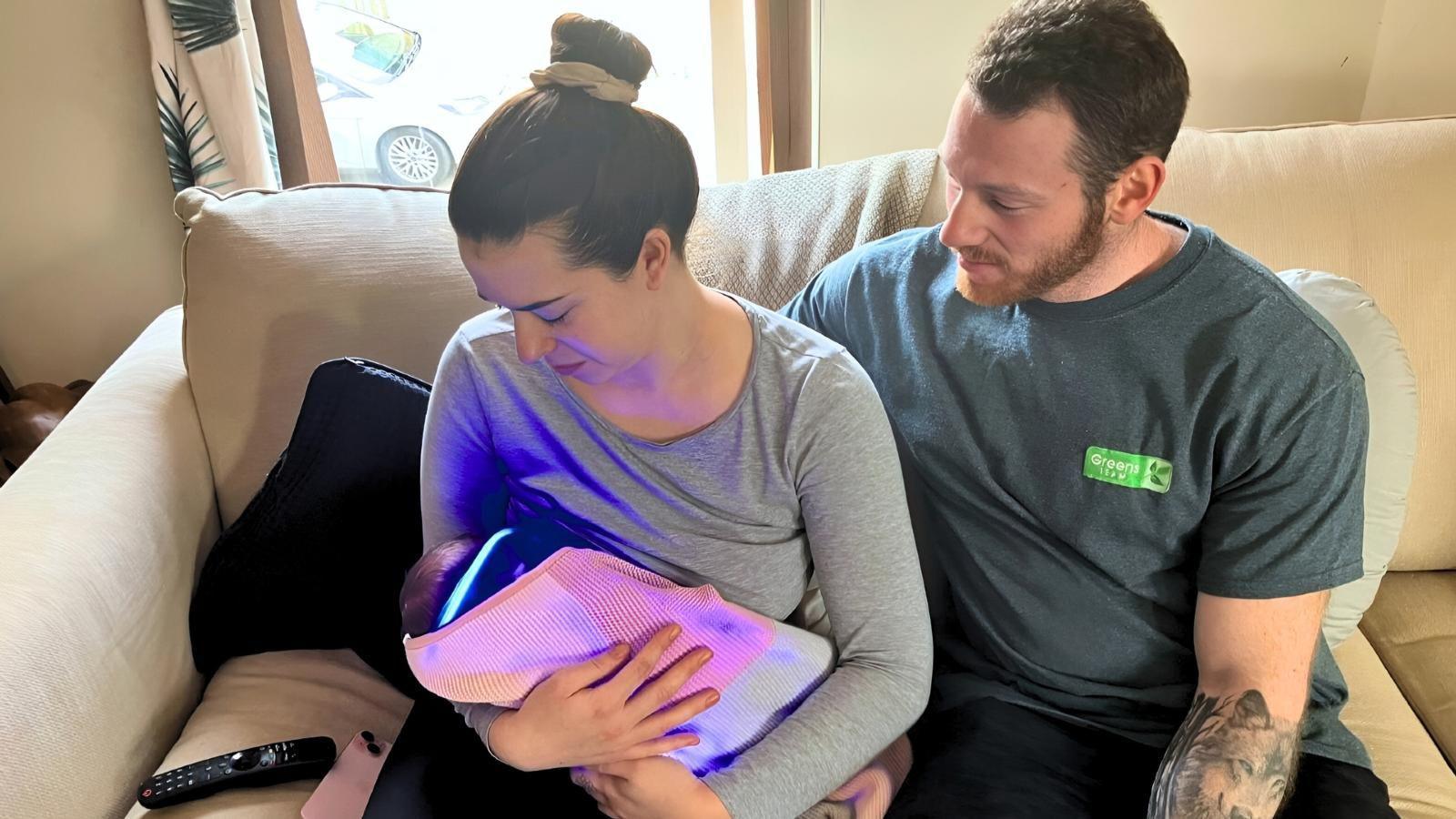
- Published4 April 2023
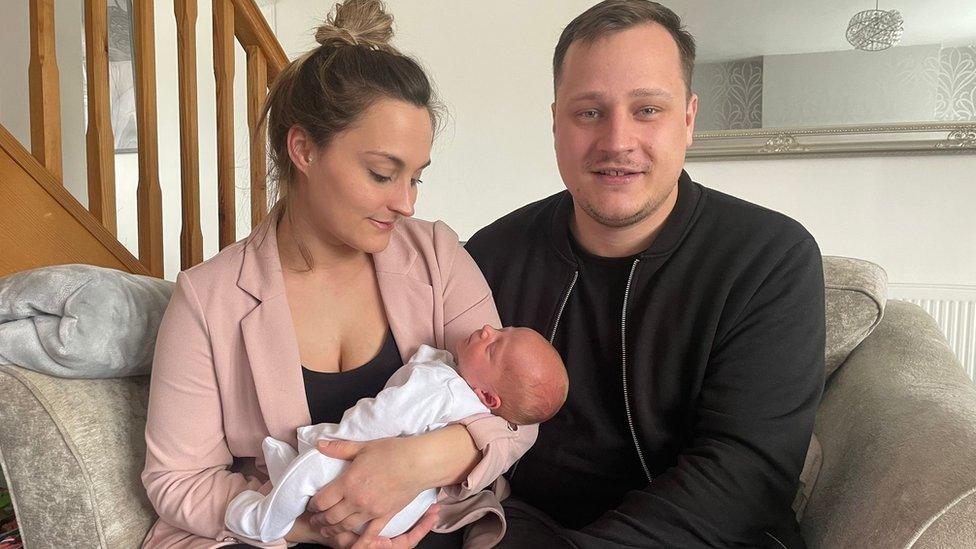
- Published12 July 2023
